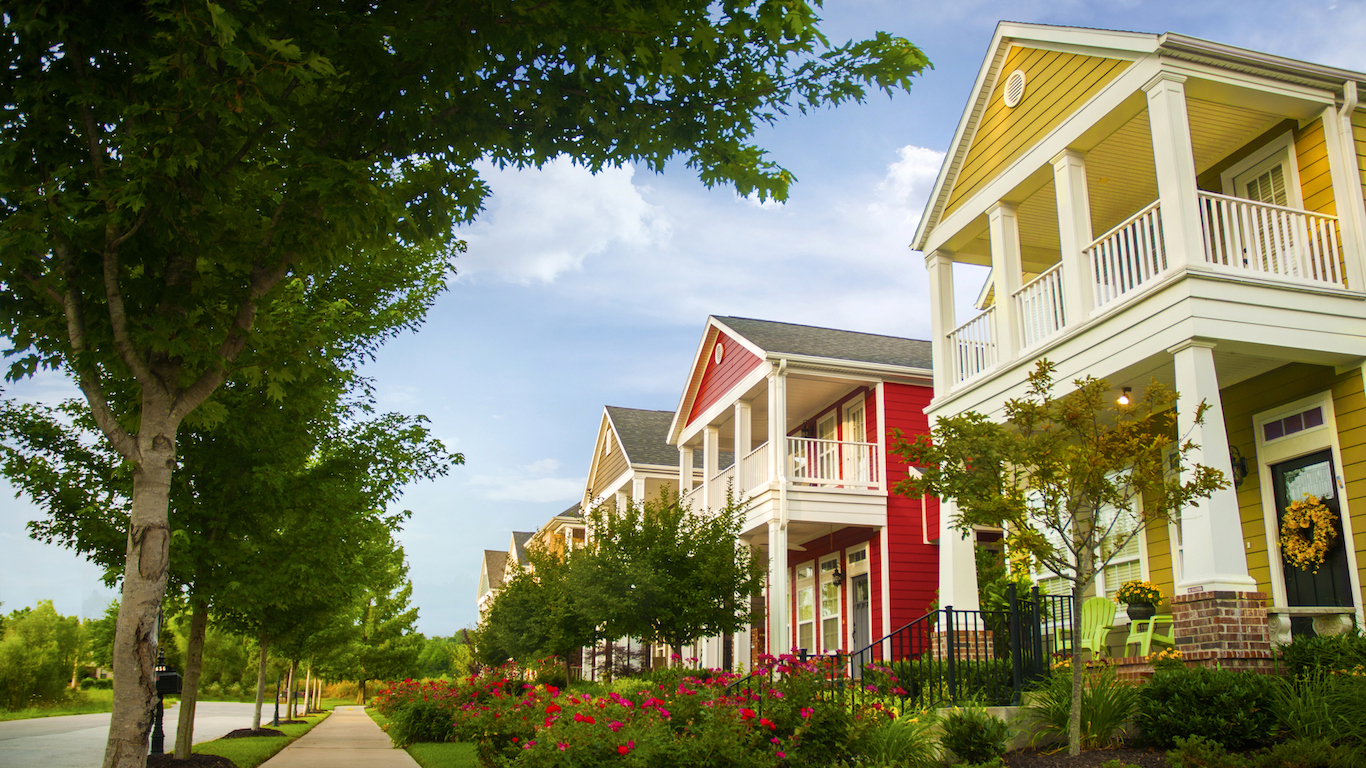Housing
US Homeowner Equity Up by $981 Billion in Past 12 Months

Published:
Last Updated:

Compared to the second quarter of 2017, homeowner equity in the second quarter of this year rose by $980.1 billion, up 12.3%. The number of homeowners whose mortgages exceed the value of the property (called negative equity or underwater) fell by a fifth (562,800) from 5.4% to 4.3% of 2.2 million mortgaged properties.
In the past 12 months, 570,000 borrowers have attained positive equity positions in their homes. according to a report released Thursday by CoreLogic. The report reflects only mortgaged single-family properties.
CoreLogic’s chief economist, Frank Nothaft, said:
Homeowner properties continued to increase in value this quarter with homeowners gaining an average of $16,200 in home equity wealth. When aggregated across all homeowners, that totals almost $1 trillion in gains in home equity wealth. This wealth gain will support additional consumption spending and home improvement expenditures in coming years.
CEO Frank Martell added:
Negative equity levels continue to drop across the U.S. with the biggest declines in areas with strong price appreciation. Further, the relatively low level of shadow inventory contributes to the chronic shortage of housing supply and price increases in many markets.
In Nevada, negative equity has dropped from a high of 72.7% in the first quarter of 2010 to 5.7% in the second quarter of this year, the largest decline among the 50 states and the District of Columbia. Only two states, Iowa and North Dakota, posted a year-over-year increase in negative equity, with each seeing a 0.1% gain.
Among the country’s largest metropolitan areas, CoreLogic called out negative equity percentages in these 10:
As the percentage of homes with negative equity rises, the amount of negative equity drops. Miami, the city with the highest rate of negative equity, has the lowest average amount. Conversely, San Francisco, where the rate is lowest, posts average negative equity of nearly $800,000.
A financial advisor can help you understand the advantages and disadvantages of investment properties. Finding a qualified financial advisor doesn’t have to be hard. SmartAsset’s free tool matches you with up to three financial advisors who serve your area, and you can interview your advisor matches at no cost to decide which one is right for you. If you’re ready to find an advisor who can help you achieve your financial goals, get started now.
Investing in real estate can diversify your portfolio. But expanding your horizons may add additional costs. If you’re an investor looking to minimize expenses, consider checking out online brokerages. They often offer low investment fees, helping you maximize your profit.
Thank you for reading! Have some feedback for us?
Contact the 24/7 Wall St. editorial team.